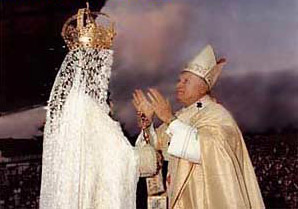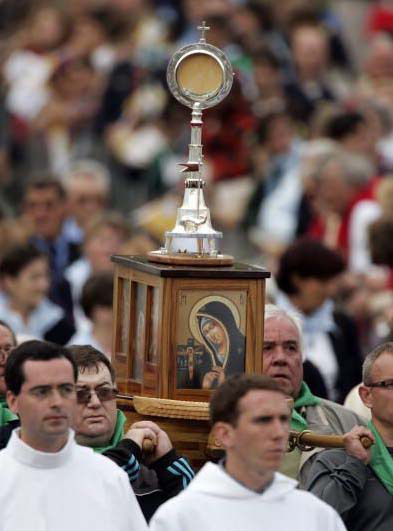My two cents:
Jesus, equal to the Father and like the Holy Spirit, and being the appointed judge of the world, was being accused of lawlessness by some of His contemporaries, but He had this to say:
17 “Do not think that I came to destroy the Law or the Prophets. I did not come to destroy but to fulfill. 18 For assuredly, I say to you, till heaven and earth pass away, one jot or one tittle will by no means pass from the law
till all is fulfilled. 19 Whoever therefore breaks one of the least of these commandments, and teaches men so, shall be called least in the kingdom of heaven; but whoever does and teaches
them, he shall be called great in the kingdom of heaven. Matthew 5:17-19
Stated plainly: The law will continue until the heavens roll up as a scroll, the stars fall from the sky, and the earth is burnt to a cinder. However: "5 Now the purpose of the commandment is love from a pure heart,
from a good conscience, and
from sincere faith, 6 from which some, having strayed, have turned aside to idle talk, 7 desiring to be teachers of the law, understanding neither what they say nor the things which they affirm. 8 But we know that the law
is good if one uses it lawfully, 9 knowing this: that
the law is not made for a righteous person, but for
the lawless and insubordinate, for the ungodly and for sinners, for the unholy and profane, for murderers of fathers and murderers of mothers, for manslayers, 10 for fornicators, for sodomites, for kidnappers, for liars, for perjurers, and if there is any other thing that is contrary to sound doctrine, 11 according to the glorious gospel of the blessed God which was committed to my trust." 1 Timothy 1:5-11
The implication is that the law is always convicting us of sin, whether Christian or not. However, those who have believed Jesus have "passed out of Judgment" or been delivered from the condemnation of the law. The law applies to us as Christians, but the condemnation it brings doesn't, however I must qualify that statement by defining Christian as being one who has believed Christ and been born again by His Spirit. The Holy Spirit is, among other purposes, our keeper; He is the seal upon us that identifies us as belonging to God. This last statement provides room for discussion as well, but falls under the topic of our assurance of salvation and can be addressed elsewhere. Paul had a lot to say about our freedom and liberty in Christ, yet professing Christians still argue that we should observe the law. Here is the problem with that thinking.
The law is good, prohibiting evil works and perscribing good works, but James, the brother of our Lord warns us that the breaking of any part of the law makes one guilty under the law: 10 For
whoever shall keep the whole law, and yet stumble in one point, he is guilty of all. 11 For He who said, “Do not commit adultery,”[
b] also said, “Do not murder.”[
c] Now if you do not commit adultery, but you do murder, you have become a transgressor of the law. 12 So speak and so do as those who will be judged by the law of liberty. 13 For judgment is without mercy to the one who has shown no mercy. Mercy triumphs over judgment James 2:10-13
James gets this idea from the law itself:
26 ‘
Cursed is the one who does not confirm all the words of this law by observing them.’ “And all the people shall say, ‘Amen!’ Deuteronomy 27:26 The law provided temporary atonement through animal sacrifice for the commiting of unintentional sin, but the punishment for intentional sin is typically death. Under grace, even intentional sin is covered by the blood of Christ (e.g. the thief upon the cross had obviously been guilty of intentional sin), though that doesn't imply that sin has no consequence to those under grace. Sin brings discipline to those who are adopted by God. Sound doctrine informs us that we are evil by nature and incapable of being entirely righteous, our best efforts being as impure as filthy rags (actually menstrual cloths which are ritually impure by nature: Isaiah 64:5-7), but that in believing Christ we receive an imputed righteousness from Him. The corolary is stated by King David in Psalm 32:"Blessed
is he whose transgression
is forgiven,
Whose sin
is covered.
2 Blessed
is the man to whom the Lord does not impute iniquity, And in whose spirit
there is no deceit."
David wrote of the sinner who receives grace in terms similar to Paul's, but we also see the last phrase tellling us that Blessed is the man...in whose spirit is no deceit. This generally would refer to those whose spirit has been made alive in Christ, and Paul refers to the "inner man" who is being renewed, desires to do God's will and agrees with His law, yet is thwarted by his carnal or fleshly nature. 18 For I know that in me (that is, in my flesh) nothing good dwells; for to will is present with me, but
how to perform what is good I do not find. 19 For the good that I will
to do, I do not do; but the evil I will not
to do, that I practice. 20 Now if I do what I will not
to do, it is no longer I who do it, but sin that dwells in me. 21 I find then a law, that evil is present with me, the one who wills to do good. 22 For I delight in the law of God according to the inward man. 23 But I see another law in my members, warring against the law of my mind, and bringing me into captivity to the law of sin which is in my members. 24 O wretched man that I am! Who will deliver me from this body of death? 25 I thank God—through Jesus Christ our Lord! Romans 7:18-25
In this last passage Paul is referring to the same man that David is writing about in Psalm 32, the one who stands condemned by His actions, yet is redeemed by the shed blood of our Lord. My point here is this: It's good to not break God's law, but to live by it is impossible for us and God knew that we were unable to do so: 25 When His disciples heard
it, they were greatly astonished, saying, “Who then can be saved?” 26 But Jesus looked at
them and said to them, “
With men this is impossible, but with God all things are possible.” Matthew 19:25-27
The law, far from being abrogated by Jesus, was magnified by Him and presented as Holy, and its purpose in us is to keep us humble in the knowledge that we are unable to keep it and must rely on the Lord's righteousness and not our own. And more significantly, Jesus, and later Paul, teach us that performing works of the law, or good works in general doesn't establish a righteousness of our own in a meritorious sense as this is what we were created for, to do good and not evil.






